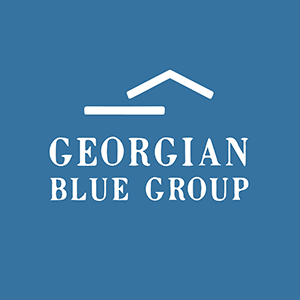Renting versus Buying (Making the Right Decision for You)

Few decisions carry as much weight as the choice between renting a home or buying a home. Each option has advantages and disadvantages, making it essential for individuals to carefully evaluate their circumstances before deciding. Consider these key factors when weighing the pros and cons of renting versus buying.
Financial Considerations
Financial stability is one of the primary factors influencing the decision between renting and buying. While renting can involve lower upfront costs and eliminate the burden of property maintenance expenses, it may not offer the long-term financial benefits associated with homeownership.
Buying a home requires a substantial initial investment, including a down payment, closing costs, and ongoing mortgage payments. However, homeownership offers the potential for equity accumulation, tax deductions, and the opportunity to build wealth through property appreciation over time.
Flexibility versus Stability
Renting provides a level of flexibility that buying cannot match. Renters can relocate quickly without the constraints of selling a property or facing potential losses due to market fluctuations. This flexibility particularly appeals to individuals with uncertain job prospects or those who prefer a transient lifestyle.
Conversely, homeownership offers stability and the opportunity to establish roots in a community. Owning a home provides a sense of pride and permanence, allowing individuals to customize their living space to suit their preferences and long-term goals (condo and homeowners associations may have specific regulations to consider).
Maintenance and Responsibility
Another crucial consideration is the level of responsibility associated with renting versus buying. Renters enjoy the convenience of having repairs and maintenance tasks handled by landlords or property managers, relieving them of the burden of homeownership responsibilities. It is essential to make a note in the lease to ensure the renter's responsibilities regarding notification of necessary repairs and maintenance.
Homeowners, however, are solely responsible for property maintenance and repairs. While this can be time-consuming and costly, it also offers the satisfaction of maintaining and enhancing one's investment. Homeownership requires tackling unforeseen challenges and investing time and resources into property upkeep.
Market Conditions and Investment Potential
Prevailing market conditions and the potential for return on investment also influence the decision to rent or buy. In a volatile housing market, renting may offer a safer option, allowing individuals to wait for favourable buying conditions or invest their savings in alternative assets.
Conversely, buying a home in a stable or appreciating market can yield significant returns over time. Real estate in Collingwood, the Blue Mountains, and across Southern Georgian Bay has historically proven a valuable long-term investment, offering the potential for equity growth and rental income (should the homeowner choose to rent the property).
Personal Preferences and Lifestyle
Ultimately, the choice between renting and buying is personal and hinges on individual inclinations, lifestyle considerations, and future aspirations. For some, the allure of homeownership and its stability outweigh the flexibility of renting; for others, renting is appealing as it offers flexibility and the ability to relocate quickly for career opportunities or personal preferences. Assess your financial situation, career prospects, and lifestyle preferences before deciding.
Renting and buying each offer distinct advantages and disadvantages, making it crucial to carefully evaluate your circumstances and priorities before making a decision. Consult financial advisors, the Georgian Blue Group, or trusted friends and family members to gain valuable insights and perspectives. Whether you choose the flexibility of renting or the stability of homeownership, ensure it aligns with your financial goals and lifestyle preferences. By weighing the pros and cons and considering the long-term implications, you can make an informed decision that suits your needs and sets you on the path to financial well-being.
